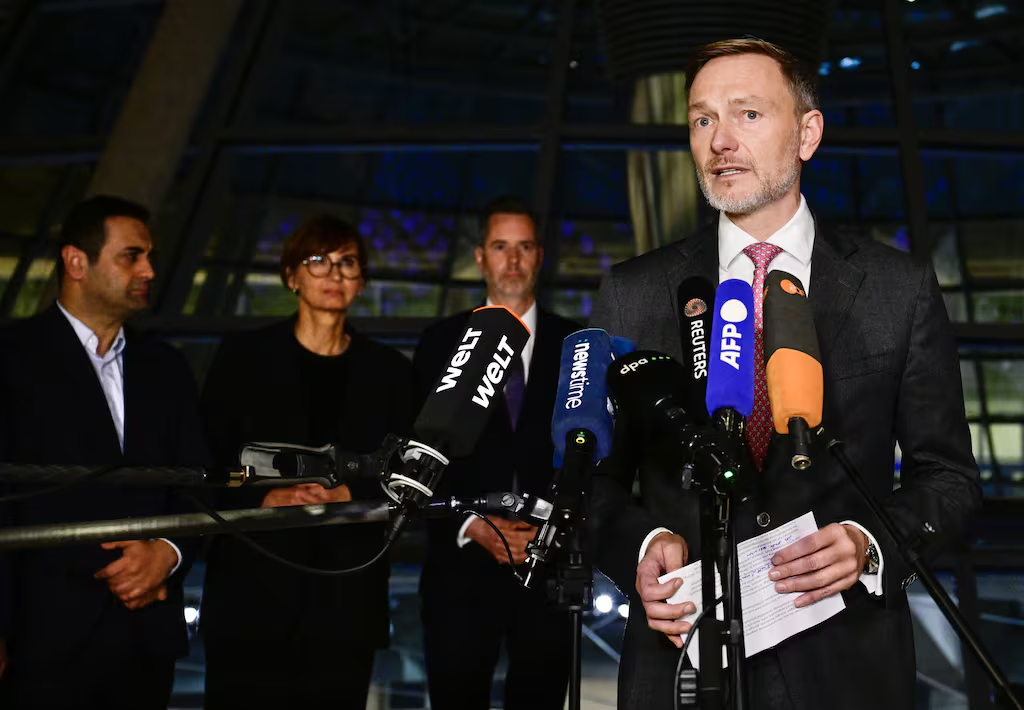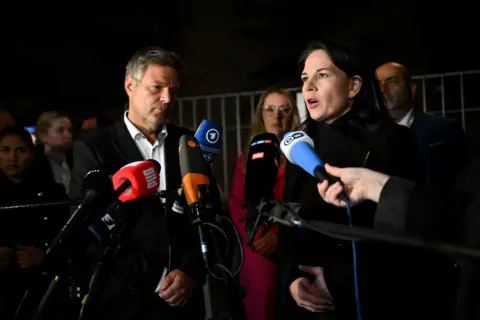Germany plunged into political turmoil Thursday as Chancellor Olaf Scholz fired Finance Minister Christian Lindner and announced plans for a confidence vote, effectively ending the three-party “traffic light” coalition that has governed Europe’s largest economy since 2021.

The dramatic collapse, coming hours after Donald Trump’s U.S. election victory, deepened uncertainty about the continent’s economic and security outlook. President Frank-Walter Steinmeier urged restraint, stating, “This is no time for tactics and squabbling, but for reason and responsibility.”
Scholz accused Lindner, leader of the pro-business Free Democrats (FDP), of betraying his trust and prioritizing party interests over national needs. The rupture stemmed from escalating tensions over the 2025 budget, with Germany facing its second consecutive year without economic growth.
The coalition’s dissolution leaves Scholz’s government without a parliamentary majority. While the chancellor announced a confidence vote for January 15, opposition leaders demanded an immediate vote. Steinmeier indicated his readiness to dissolve parliament and call early elections should Scholz lose the vote.
“This is not a good day for Germany and not a good day for Europe,” said Foreign Minister Annalena Baerbock of the Greens party, highlighting concerns about regional stability.
The fundamental disagreement centered on Germany’s constitutional “debt brake,” which requires balanced budgets. Scholz and his Green partners advocated loosening these restrictions to increase spending, while Lindner insisted on maintaining fiscal discipline through welfare cuts and delayed environmental targets.

The crisis has fractured the unique alliance formed after the 2021 federal elections, nicknamed the “traffic light” coalition for the party colors of its members: the Social Democrats’ red, FDP’s yellow, and the Greens’ green. While two FDP cabinet members resigned alongside Lindner, Transport Minister Volker Wissing broke ranks, choosing to retain his position while leaving his party.
Friedrich Merz, leader of the opposition Christian Democrats who currently lead in opinion polls, pressed for swift resolution. “We simply cannot afford to have a government without a majority in Germany for several months,” he said.
The coalition’s struggles intensified following Russia’s 2022 invasion of Ukraine, which forced Germany to confront surging energy prices, increased defense spending requirements, and the cost of accommodating 1.5 million Ukrainian refugees.
Scholz will now lead a minority government comprising his Social Democrats and the Greens, who confirmed their commitment to remain in office. Economy Minister Robert Habeck of the Greens announced the party’s ministers would retain their positions.
The chancellor faces significant challenges in governing without a parliamentary majority, requiring support from other parties to pass legislation. Scholz has already reached out to Merz for cooperation on crucial budgetary measures supporting Germany’s economy and military spending.
Jörg Kukies has been appointed as the new finance minister, replacing Lindner. The government could face early elections by March unless opposition parties can form a majority to elect an alternative chancellor.



